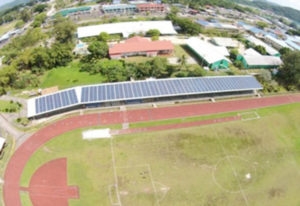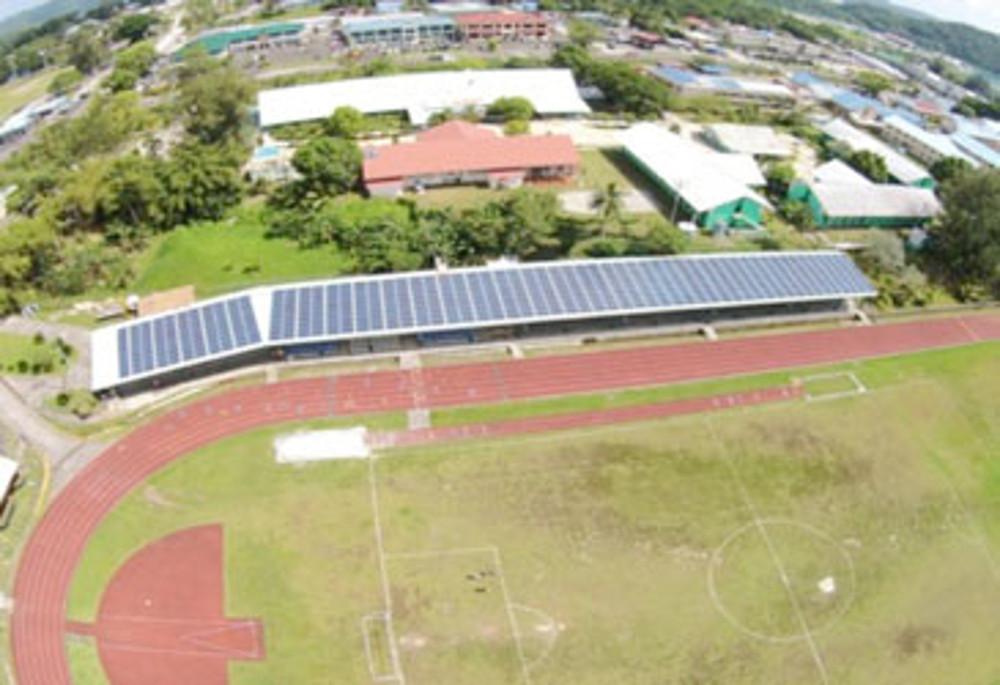 Palau has become the second Pacific Island country in over two decades to sign a National Energy Act into law which facilitates the establishment of an Energy Administration at the executive level to enforce a more effective coordination and management of the energy sector.
Palau has become the second Pacific Island country in over two decades to sign a National Energy Act into law which facilitates the establishment of an Energy Administration at the executive level to enforce a more effective coordination and management of the energy sector.
Representatives from Palau’s government ministries and departments as well as the European Union and Pacific Community (SPC) partnered North Pacific ACP Renewable Energy and Energy Efficiency Project (North-REP), and the United Nations Development Programme Global Environment Fund (UNDP – GEF) funded Sustainable Economic Development through Renewable Energy Applications (SEDREA) project worked together toward achieving this landmark legislation that was signed on 5 February, by President Tommy Remengesau.
In its National Energy Policy 2010, Palau identified the need to have such a facility with dedicated resources at such an appropriate level that would completely reshape the energy sector in Palau.
“It was a comprehensive process of drafting, consulting and debate within the Senate and the House of Delegates including public hearings. This would not have become a reality without the support and persistence of Senate Vice President Rukebai Inabo and Delegate Lentcher Basilius,” said Palau’s Director of Energy, Greg Decherong.
“Having such a law will further strengthen the energy sector through real commitments by means of budget allocation and coordinated national responsibilities,” Decherong added.
“Palau and Cook Islands have paved the way and it is our hope that such commitments will be replicated by others in the region,” SPC’s Deputy Director Energy of the Economic Development Division, Solomone Fifita said.
The European Union Ambassador to Fiji and the Pacific, H.E. Andrew Jacobs said the positive step taken by Palau was a great example to all Pacific Island countries.
“I commend all those involved in this undertaking for achieving such a great outcome for the people of Palau. Having a strong and fully resourced energy administration will mean better coordination between Palau and development partners in the energy sector which will in turn help Palau towards achieving its energy policy goals, in particular with increasing the penetration of renewable energy sources,” Ambassador Jacobs said.
While most Pacific Island countries and territories have developed and adopted national energy policies over the past decade, the ideas and proposed pathways in these documents have not been fully realised due to limited regulations and legislation to support coordination and implementation of activities.
There have often been ad-hoc approaches to legislation and normally enacted as a result of a state of emergency and as a result only two Pacific Island countries and territories to date have developed National Energy Acts – Cook Islands and the Republic of Palau.
Media contacts: Rupeni Mario, SPC North-REP Project Team Leader, [email protected]
Mohammed Nazeem Kasim, EU Press Officer, [email protected] Or +679 331 3633
